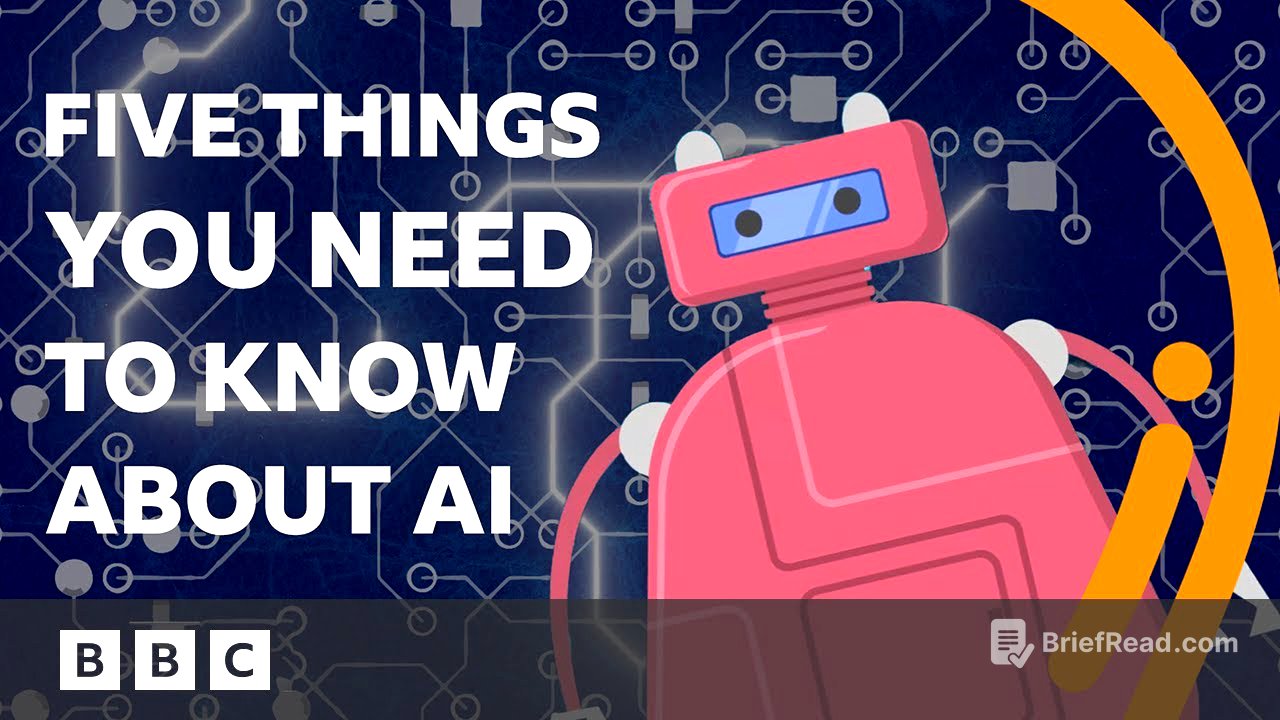TLDR;
This video discusses five key aspects of AI, aiming to demystify the technology and address common concerns. It covers the history of AI, its inability to feel or think, its tendency to fabricate information, the potential for bias, and its incredible potential across various fields. The video emphasizes that AI is a tool and its impact depends on how humans choose to use it.
- AI has been around since the 1940s with the concept of artificial neural networks.
- AI cannot feel or think; it operates based on pattern recognition and probability.
- AI can "hallucinate" or make up information due to its predictive nature.
- AI can exhibit biases if trained on biased data.
- AI has the potential to revolutionize healthcare and enhance work across various fields.
AI is Older Than You Think [0:26]
AI's roots trace back to the 1940s with the concept of artificial neural networks, which function like interconnected workers learning to solve problems. These networks improve through adjustments and changes over time, becoming efficient in various applications. Technology powered by neural networks is prevalent today, suggesting movies and music, recognizing faces and objects in photos, and personalizing social media feeds. Generative AI powers applications that create new data and chatbots like ChatGPT and Bard, which provide human-like responses to questions.
AI Can't Feel or Think [1:39]
Despite the human-like responses from AI chatbots, it's important to remember that AI cannot feel or think. When asked a question, AI provides a logical-sounding response based on patterns of communication, but it doesn't understand the content or have feelings and motivations. Chatbots are sophisticated sentence completion apps that analyze communication patterns and provide responses similar to human replies, acting like a talking parrot.
AI Makes Stuff Up [2:27]
Chatbots sometimes fabricate information, technically known as AI hallucinations. The technology uses probability to predict the next word, sentence, or paragraph, generating plausible replies without assessing truthfulness or accuracy. Therefore, anyone using chatbots to write content should be cautious about incorporating credible-sounding misinformation that could be easily spotted by someone who has done actual research.
AI Can Sound Racist and Sexist [3:10]
If AI is trained on racist, biased, or hateful data, its output will reflect those biases. In 2016, Microsoft launched a chatbot called Tay, but it was quickly shut down after making racist and offensive remarks learned from interacting with social media users. Microsoft apologized and promised to improve safety features. This highlights the importance of ethical frameworks and safeguards to prevent bias and hate speech in AI systems.
AI Has Incredible Potential [4:01]
AI has significant potential benefits, particularly in revolutionizing healthcare. It has already aided in discovering new drugs and identifying cancer cells more reliably than humans. AI chatbots can also serve as patient teachers, summarizing large volumes of information to help people understand complex topics. The AI revolution can enhance and speed up work in various fields, potentially freeing up humans to address issues like climate change and improve personal and communal well-being. Governments and regulators need to ensure AI is used ethically and legally, recognizing that AI is a tool whose impact depends on human choices.









